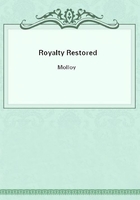
第112章 CHAPTER XIX.(3)
The Boar's Head, in Eastcheap, which gained pleasant mention in the plays of William Shakespeare, when rebuilt, after the great fire, became a famous resort. The Three Cranes, in the Vintry, was sacred to the shade of rare Ben Jonson. The White Bear's Head, in Abchurch Lane, where French dinners were served from five shillings a head "to a guinea, or what sum you pleased," was the resort of cavaliers, The Rose Tavern, in the Poultry, was famous for its excellent ale, and no less for its mighty pretty hostess, to whom the king had kissed hands as he rode by on his entry. The Rummer was likewise of some note, inasmuch as it was kept by one Samuel Prior, uncle to Matthew Prior, the ingenious poet. On the balcony of the Cock, near Covent Garden, Sir Charles Sedley had stood naked in a drunken frolic; and at the King's Head, over against the Inner Temple Gate, Shaftesbury and his friends laid their plots, coming out afterwards on the double balcony in front, as North describes them, "with hats and no peruques, pipes in their mouths, merry faces and dilated throats, for vocal encouragement of the canaglia below."All day long the streets were crowded by those whom business or diversion carried abroad; but when night fell apace, the keepers of stalls and shops speedily secured their wares and fastened their doors, whilst the honest citizen and his family kept within house. For the streets being unlighted, darkness fell upon them, relieved only as some person of wealth rode homewards from visiting a friend, or a band of late revellers returned from a feast, when the glare of flambeaux, carried by their attendants, for a moment brought the outlines of houses into relief, or flashed red light upon their diamond panes, leaving all in profound gloom on disappearing.
The condition of the thoroughfares favouring the inclination of many loose persons, they wandered at large, dealing mischief to those whose duty took them abroad. From the year 1556, in the reign of Queen Mary, "fit persons with suitable strength" had been appointed to walk the streets and watch the city by night;to protect those in danger, arrest suspected persons, warn householders of danger by fire and candle, help the poor, pray for the dead, and preserve the peace. These burly individuals were known as watch or bell men; one was appointed for each ward, whose duty it was to pass through the district he guarded ringing his bell, "and when that ceaseth," says Stow, "he salutes his masters and mistresses with his rhymes, suitable to the seasons and festivals of the year, and bids them look to their lights."In the third year of the reign of King Charles II., whilst Sir John Robinson was mayor of London town, divers good orders were made by him and his common council for the better service of these watches. The principal of these set forth that each should be accompanied by a constable and a beadle selected from the inhabitants of their respective wards, who should be required in turn to render voluntary service in guarding the city, from nine of the clock at night till seven in the morning, from Michaelmas to the 1st of April; and from that date until the 31st of March, from ten at night till five in the morning.
These rules were not, however, vigorously carried out; the volunteers were frequently unwilling to do duty, or when, fearful of fine, they went abroad, they usually spent their time in tippling in ale-houses, so that, as Delaune remarks, "a great many wicked persons capable of the blackest villainies do creep about, as daily and sad experience shows." It was not only those who, with drawn swords, darted from some deep porch or sheltering buttress, in hopes of enriching themselves at their neighbour's expense, that were to be dreaded. It was a fashion of the time for companies of young gentlemen to saunter forth in numbers after route or supper, when, being merry with wine and eager for adventure, they were brave enough to waylay the honest citizen and abduct his wife, beat the watch and smash his lantern, bedaub signboards and wrench knockers, overturn a sedan-chair and vanquish the carriers, sing roystering songs under the casements of peaceful sleepers, and play strange pranks to which they were prompted by young blood and high spirits.